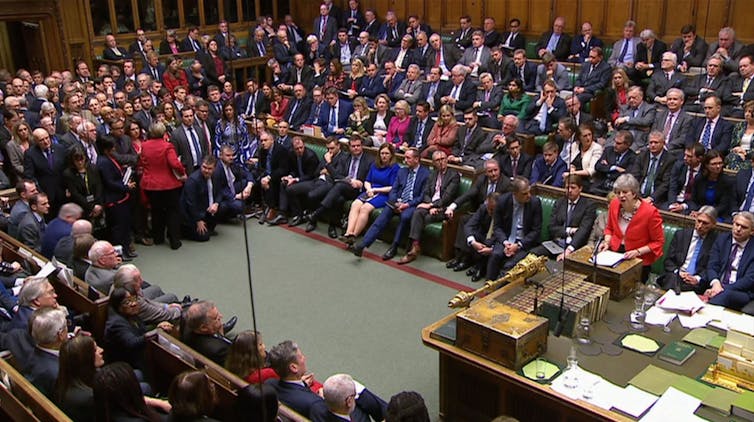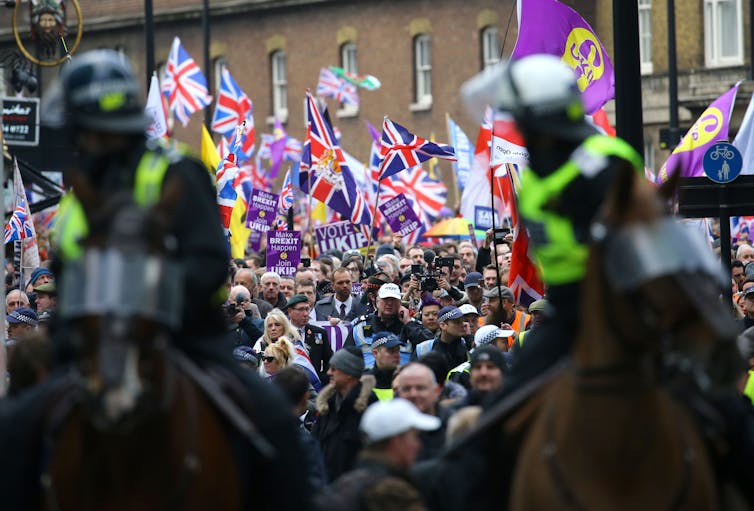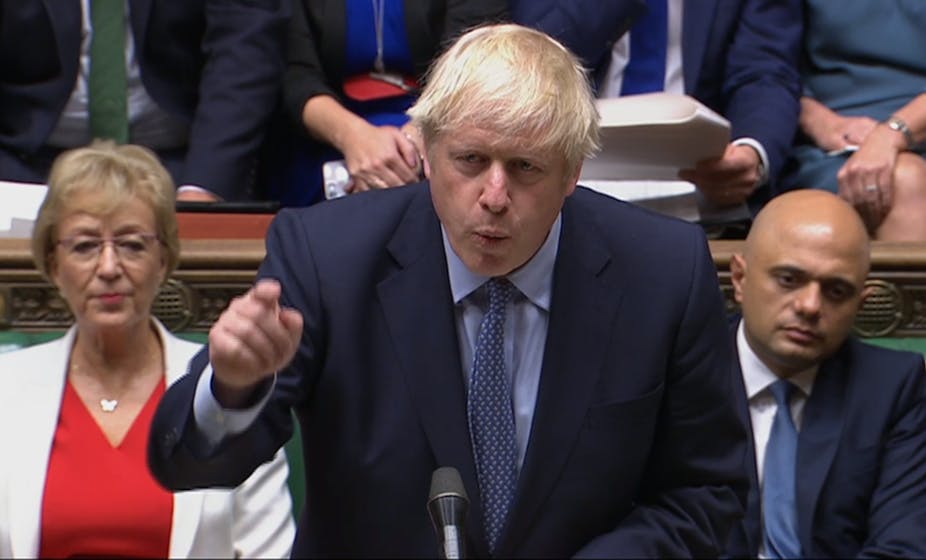Recent scenes in the UK House of Commons, showcasing language that has been criticised as inflammatory and divisive, have caused deep concern. In particular, many people have objected to Boris Johnson, the prime minister, dismissing as “humbug” the suggestion that his use of certain words was echoed in death threats to female Remain MPs. The fear being that using words such as “surrender”, “betrayal” and “traitors” in parliament, legitimises their wider use in the Brexit debate.
It is indeed true that these words have been used more often than usual in parliament of late. Use of the word “traitors”, for example, increased sharply in the first half of 2018 and then again since the beginning of 2019. It is closely associated with debates about Brexit, as we’ve come to see.
The word “betrayal” was used frequently in late 2018 and all through to the earlier part of this year, during which time MPs were debating Theresa May’s Brexit deal and, ultimately, voting against it three times. This word is at the centre of arguments about what the British people actually want when it comes to Brexit.
The word “surrender” was used quite frequently in March and April 2019 – as the original Brexit deadline came and went – and shows a large spike in September, as the new prime minister dialled up talk of leaving the EU without a deal and MPs resisted. It is a word mostly used to talk about extensions to the Brexit date: Theresa May’s request to the EU in March was referred to as such, while more recently, members of the government including the PM have called the Benn Bill, which is meant to prevent a no-deal Brexit, a “surrender bill”.

Johnson insists that the term “surrender bill” is accurate because the Benn bill would make it harder for him to secure a deal from the European Union by taking the threat of a no-deal exit off the table. But the question is not whether it is accurate or not, so much as what it implies. Terms such as “surrender”, “betrayal” and “traitors” evoke a scenario in which the UK is at war with the EU. Anyone who doesn’t support the government is therefore hindering the metaphorical war effort and should be punished. Framing high-stakes negotiations as a military confrontation is unlikely to lead to success and may damage the relationship between the negotiating partners after Brexit too. It would be better to understand and talk about the negotiations as a joint endeavour, such as a project, or as a journey taken together until each party goes their own way.
At the same time, however, calling or comparing Johnson and his government to a “dictatorship” and accusing them of staging a “coup” with the prorogation also triggers emotions of anger and fear by suggesting that democracy itself is at stake. In fact, both sides of the debate see democracy as being threatened by the other. Leave supporters see direct democracy as being undermined while Brexit is delayed and Remainers are concerned about representative democracy being threatened when the government ignores the concerns of MPs.
Feedback loop
Of course this polarised framing does not stop at the doors of the Palace of Westminster. Indeed, the area around parliament has for many months been occupied by vocal protesters for or against Brexit, whose placards also feature words like “betrayal” and “coup”. Insults such as “traitor” and “disgrace” are not only shouted in the House of Commons but also on the street, and used on social media and in emails to politicians. Crucially, they also feature on the front pages and websites of some newspapers. So perhaps rather than talking about parliamentary language having an impact on how the public talks about Brexit, it would be more accurate to say that politicians, the public and the press are caught in a three-way feedback loop, each reinforcing the other. The debate is becoming ever more agitated, uncivil and irrational as a result.

Establishing a direct causal link between language use and physical violence is difficult. We know that hate crime in the UK has risen since the referendum, but incidents such as the physical threat to Labour MP Jess Phillips outside her office the day after the emotionally charged Commons debate are thankfully rare. There is no doubt, though, that language use, especially when widely publicised, influences people’s understanding of an issue.
Johnson dismissed the suggestion that the kind of language he and his allies have been using about Brexit is linked to violent threats made against members of parliament. It’s not a coincidence that he used the word “humbug” to express his disbelief: Johnson specialises in old-fashioned insults that are all the more memorable for being archaic. But it is strange to see someone who uses language so strategically deny that language has an effect. It is not unlike claiming, in front of TV cameras, that there is no press in the room or saying that suspending parliament has nothing to do with the Brexit process. In other words, it is part of Johnson’s post-truth universe.

